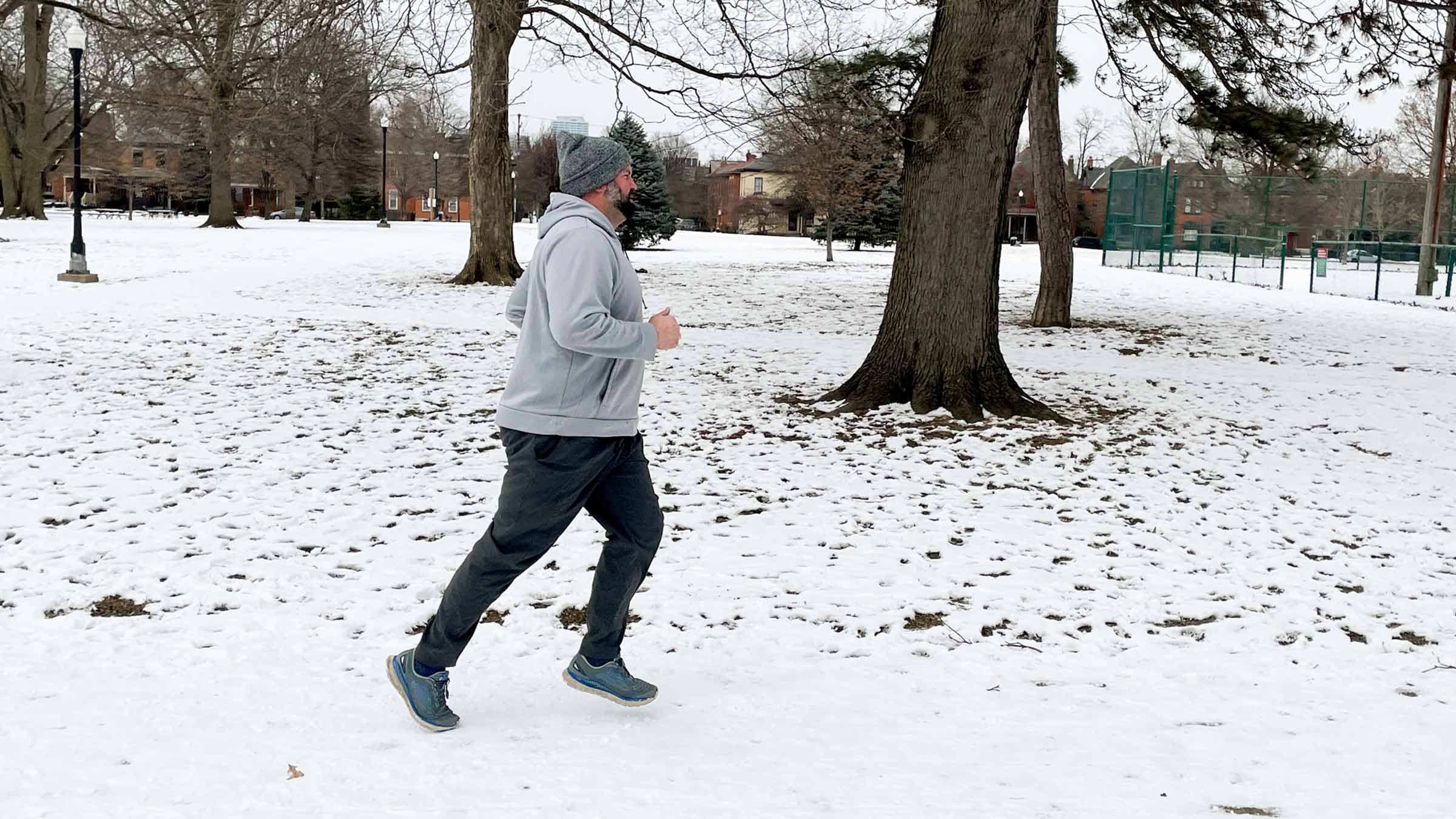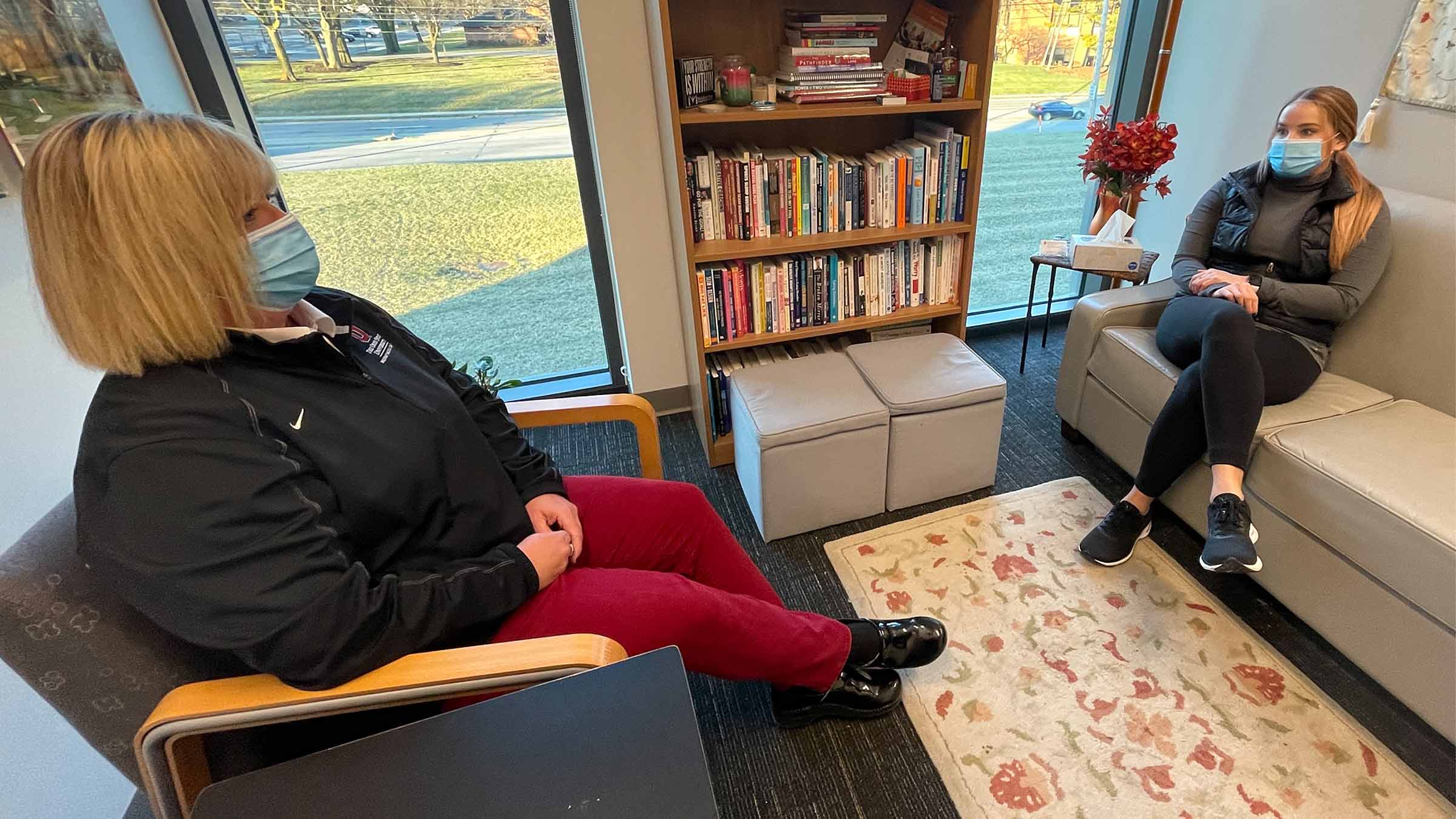
After a back injury brought an abrupt end to Jordan Hoewischer’s promising college football career, the now 37-year-old struggled with, “what’s next?” Hoewischer worked his whole life to excel on the football field, and knowing that was all coming to end — something he had put so much time, effort and energy in — was tough on his mental health.
“Knowing that I had put all that energy into getting to the college football level, it was tough because at a large university you really fall into a pattern,” Hoewischer, a Columbus resident, said. “And then [after the injury] I had to fall back into the real world.”
As the world turns its attention to the 2022 Winter Olympic Games, there comes an opportunity to shine a spotlight on the mental health of athletes. After years of competing in the sport, U.S. snowboarder Shaun White said the Beijing Games will mark his final Winter Olympics. Like Hoewischer, something that White has been so passionate about and worked his whole life to excel at is coming to an end.
As some of the most celebrated Olympic athletes in the world, like Simone Biles and Michael Phelps, open up about their struggles with mental health, it’s important for athletes of all levels to prioritize caring for their mental health so that developing issues do not become debilitating barriers to their success and well-being.
Despite expectations, athletes are not machines. They’re human. Ignoring their emotions, fears and overall mental health can not only be detrimental to any athlete’s ability to perform, but also to their lives outside of the sport.

“That stoic toughness that athletes possess is a real strength that helps them put on their game face, helps them get through any ups and downs in the competition effectively,” said Jen Carter, sport psychologist at The Ohio State University Wexner Medical Center. “And when they're off the field, that can be a weakness because it can prevent them from asking for help. We can't do it all alone. We aren’t alone.”
Sport injuries are often a catalyst to mental health struggles, and while the physical trauma heals over time with concrete steps for recovery, emotional scarring often remain.
“You can see a broken arm. You can see a lab value that supports hypertension. Mental health is a bit more abstract and nuanced, but it's equally as impactful if not more impactful. The two are very interrelated and can significantly increase your quality of life if these things are well controlled and well treated.”Dr. Joshua Norman, sports psychiatrist at Ohio State Wexner Medical Center
Ohio State Sports Medicine experts say it’s imperative to understand sport culture to provide support. Recovery requires specialized care from both sport psychologists and psychiatrists that is individualized to each athlete’s unique experience, whether it’s fear of re-injury, the intense pressure and stress of competition or team and/or coaching dynamics.
Experts also offer the following tips for athletes of all levels to focus on their mental health:
Speak up
Athletes are trained to fight through physical and emotional pain. However, ignoring or hiding issues will only escalate the problem. Real toughness comes from self-awareness and effective coping with the joys and pain of life.
Find the right resources
Because athletes often put on a brave face, it’s more difficult to identify mental health issues. Trained sport psychologists and psychiatrists who work with athletes pick up subtle signs and address them. Athletic trainers and sports medicine physicians can help athletes connect with specialized professionals who understand the athlete experience.
Develop the entire self
Athletes dedicate an immense amount of time and effort to their sport. At some point, they will have to part ways with competition, a major part of their lives. While ending an athletic career can be distressing, it’s important to remember to set goals for retirement, develop aspects of identity outside of sport and talk to other athletes who have retired.
“At some point in time, athletes will end their career and move on to do other things in life,” Norman said. “Having an awareness and an openness to be able to seek treatment for mental health conditions can increase their quality of life longitudinally.”

Ohio State sports psychology
Train your mind and your body with our dedicated sports psychology team.
Learn More





